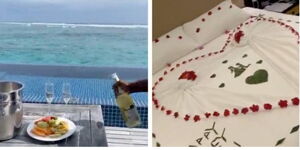In a country where the unemployment rate has been rising, making an extra shilling from a side hustle is always welcome with a number of entrepreneurial minds contemplating the liquor business, either on a small or large scale.
The process of registering is not a walk in the park, but once all requirements are met, the liquor business is among the most lucrative in the country. The National Authority for Campaign Against Alcohol and Drug Abuse (NACADA) has ensured stringent enforcement of liquor licensing.
The trade is known to offer lucrative profits, and for members of the public planning on venturing into the trade, Kenyans.co.ke sought to sensitize on the procedures of acquisition of licenses to setting up shop.
1. Business Name; Before you can start to apply for a liquor license you will be required to have a registered company name. The government, however, made the process easier as you could access this service through e-citizen.
Register with e-citizen free of charge, then pay Ksh150 for a company name search, and a response shall be issued within three days.
You will then have to pay for the company registration which may cost about Ksh11,000, or you could register the entity as a business partnership for about Ksh2,500 or sole proprietor for about Ksh950.
2. Kenya Revenue Authority (KRA) PIN; As you embark on establishing your business, you will be required to comply with all tax obligations as stipulated by the taxman. The entire registration process can be done on KRA's iTax portal.
You will be required to submit the business director's personal KRA PIN plus copies of their IDs. Apply for the business' PIN, submit the PIN acknowledgment receipt after which you will now acquire a company PIN.
3. Liquor licence; There are three types of licences all dependant on the size of business you want to set up;
Brewers licence; this is for big companies, or firms looking to produce their own individual brands of alcohol. The wholesale licence; is for persons looking to supply alcohol from distillers to retailers. The retail licence is for business owners who want to sell alcohol out of a specific establishment, like a bar, a wine and spirit shop directly to consumers.
One is required to obtain them by applying from the Liquor Licensing Board at their respective counties, though regulations to be met differ from county to county.
The disparity is mainly based on the type of establishment; is it a bar, wines and spirits or a restaurant? what are the drinking hours? These factors determine the cost of the document.
You will now be required to acquire an application form from the County Council Business Licencing. Fill the form carefully, inputting the business name, physical address, KRA company/business pin, and Identification documents.
The information submitted will then aid in determining the cost of your licence. Once granted, you will be awarded a licence and can embark on selling liquor.
Bar Owner Association Secretary-General Boniface Gachoka while appearing on an interview with TV47 on January 28, 2021, urged the public to dismiss notions peddled against the liquor industry, laying out the prices for licensing.
The prices for various licences are as follows; General retail alcoholic drink licence Ksh50,000, general retail alcoholic drink licence (off licence) Ksh24,000, brewer’s alcoholic drink licence Ksh1,000,000 and a bottler's alcoholic drink licence at Ksh250,000.
A hotel alcoholic drink licence may cost Ksh50,000, a restaurant alcoholic drink licence Ksh. 30,000 and a supermarket and franchised retail stores, alcoholic drink licence at about Ksh80,000.
A temporary or occasional alcoholic drink licence may cost about Ksh1,000, transferring an alcoholic drink licence Ksh1,000 and Ksh 1,000 for a licence to remove an alcoholic drink.
4. Business Permit: To run the business you will also be required to acquire an annual business permit from your respective city or county council.
Applying for one and getting it may take a period of one week for an estimated Ksh3,500.
5. Location: While setting up your business, the location is central to the success or failure of the enterprise.
Liquor business tends to do well in areas with high traffic. Avoid areas near learning institutions as it is against the law, and religious institutions.
The security of the area is key as revelers will not frequent a joint where they don't feel safe after indulging or during late hours.
6. Competition. Scout adequately for a strategic location when setting up shop. Be vigilant of your competition as it will help determine the liquor brands to sell and which to avoid.
The competition should also enable you to set a decent but competitive price.
7. Establishment or size of the room. Depending on the type of liquor business. The type and size of a premise is also a factor when opening a business. If revellers in the area of the business prefer to leisure outside their houses, then a bigger and comfortable space may root for your success.
8. Stock and furniture. For starters, a simple wines and spirits shop, inclusive of a counter and stools may command about Ksh50,000. For the inventory, a stock of Ksh50,000 is enough to get you going.
It is advisable to set aside a spare budget for miscellaneous of about Ksh50,000 toKsh100,000.
9. Distributor. Finally, you will have to identify a trustworthy and licensed distributor to supply you with the liquor brands in your shop, both in a consistent and timely fashion.
As you run your business, ensure you tailor your inventory around drinks consumed by your patrons. Avoid a huge inventory comprising drinks rarely consumed. This may bring you losses.
Keep your stock within the budget of your patrons. Highly expensive drinks may stay for long on shelves denying you quick profits. Also understand which brands have more profits than which, to ensure you have a balanced stock.
Lastly, ensure you can provide at least everything if not all on your customer's list. Patrons will return if they know they can find whatever they are looking for in one place.












